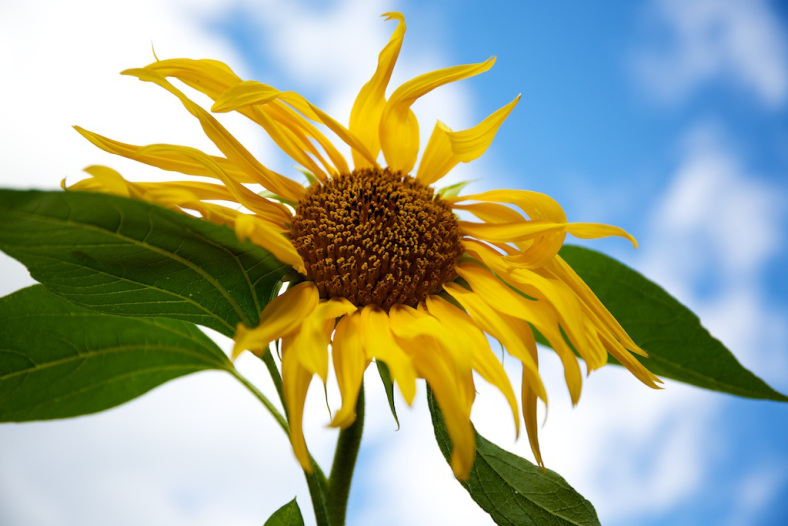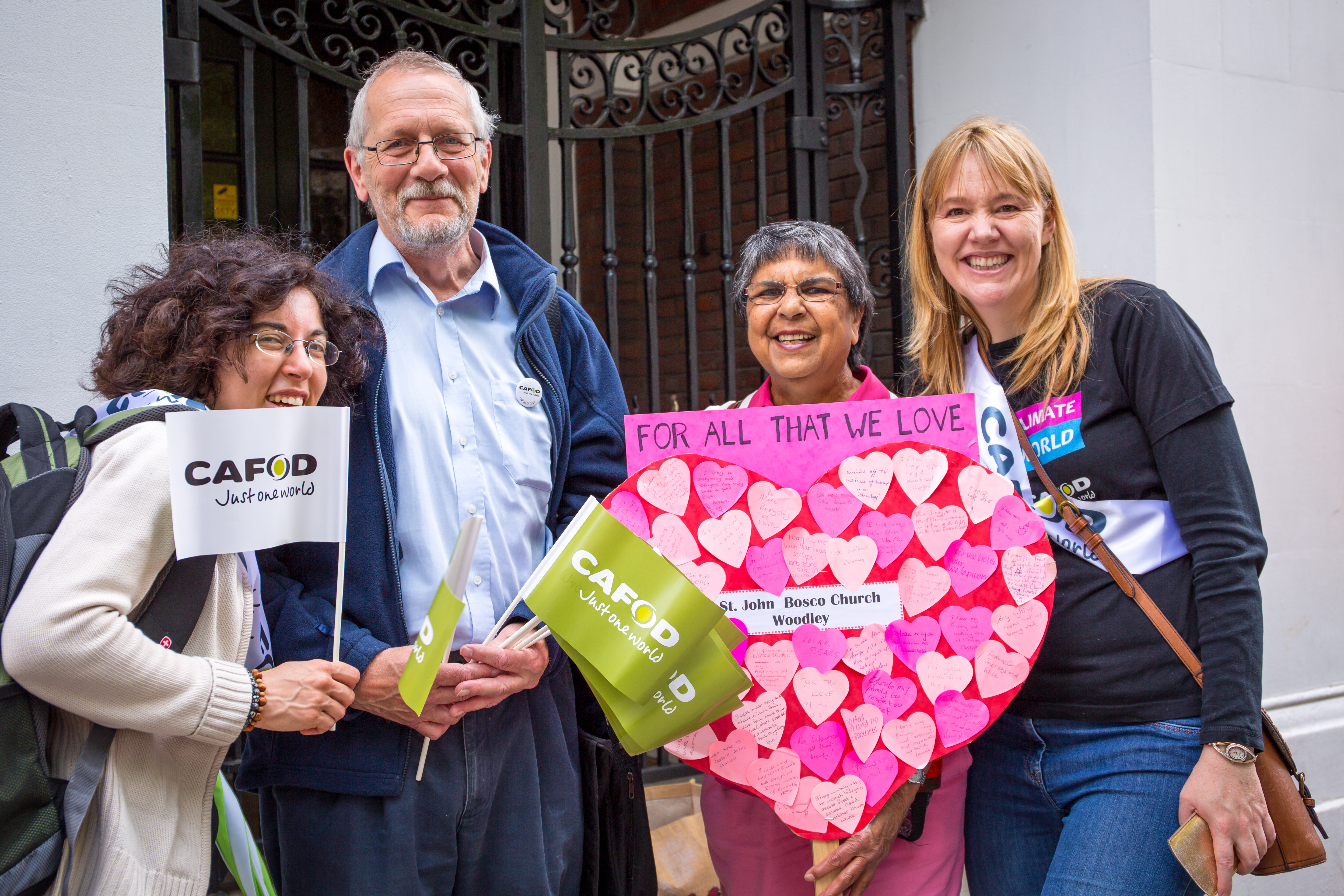Laudato Si’: Caring for the garden of creation
This blog is written by Bernard Shaw from East Anglia diocese. He has been involved with livesimply since 2009, and more recently has been part of a small CAFOD group sharing insights on Catholic Social Teaching and the encyclical. Bernard explains how he is inspired by Laudato Si’.

A rich tradition of caring for creation
When explaining his choice of name back in 2013, Pope Francis spoke of St Francis of Assisi as the man of poverty, peace and care for creation, a significant step “in this moment when our relationship with creation is not so good”. This left me with an expectation of development of his predecessors’ teachings in this area and now we have his most comprehensive document yet in Laudato Si’. In it, he calls for global dialogue across disciplines, including a religious contribution, to address humanity’s propensity to pollute and leave so many people living in desperate poverty. Too often economic and political decisions lack the long term vision to recognise environmental impacts. Pope Francis also corrects the notion that biblical texts justify our absolute domination over other creatures, explaining our “duty to protect the earth and to ensure its fruitfulness for coming generations”#67. He outlines the Gospel of Creation and invites everyone to experience an ‘ecological conversion’.
“Creation is a magnificent book in which God speaks to us”

One way of protecting the earth, at a personal level, is to use gardens, for those privileged to have them, in a way that encourages wildlife and minimises use of water. Back in 2011, one of our parish flower arrangers here in Cambridge had the idea of using the presbytery garden, consisting of an uneven lawn and neglected borders, for growing flowers for church decoration. It took much communal effort to rid the borders of bindweed and old tree roots.
Now the garden provides flowers for much of the year, replacing financial expenditure with human effort. Slightly encouraged by the CAFOD call to Dig Deep, an area of lawn has since been transformed into a vegetable bed, with lifting of the first potatoes eagerly anticipated.
Follow our tips for low carbon lifestyles
An appropriately managed garden can also provide space for rest and recreation for those who have access. More importantly is a need for communal green space so that all can have access to the natural world and follow the invitation of Saint Francis to see nature as a magnificent book in which God speaks to us and grants us a glimpse of his infinite beauty and goodness. Pope Francis recognises lack of housing as a grave problem in many parts of the world. Recognising that some neighbourhoods, even those recently built, are congested, chaotic and lacking in sufficient green space, he reminds us that we were not meant to be inundated by cement, asphalt, glass and metal, and deprived of physical contact with nature. No doubt his statement that creativity should be shown in integrating run-down neighbourhoods into a welcoming city draws on his first hand of the living conditions of the poorest communities around Buenos Aires.
A call for global action
International debate is also required to arrive at policies which will ensure a transition to clean energy, increased energy efficiency, conservation of oceans and forests, in particular the Amazon and Congo, and availability of clean drinking water to all. To date, businesses and politicians have been slow to rise to the task. An appreciation of all working for the common good could bring about a change in direction, hence the need for the ecological conversion. Business could be a noble vocation, working for a better world and remaining profitable, not least by developing clean technologies to provide sustainable and affordable energy.
He cites Pope Paul VI in setting before the world the ideal of a “civilisation of love” and goes on to promote civil and political action. This encourages those of us who gathered in Westminster for the Speak Up For The Love Of… lobby on 17 June to demonstrate to our elected representatives the importance of taking action on climate change in solidarity with poor communities and reaching an agreement at the UN talks in Paris.
Sign our petition on climate change
A call to live simply

Community action also has a part to play in preserving the natural environment whilst ensuring availability of decent housing and promoting the common good. Counter to this is an individualism that seeks fulfilment in rampant consumerism.
Pope Francis addresses ecological education and spirituality, presenting a positive vision of a lifestyle in which we have time to stop and appreciate the smallest wonders of the natural world, to value the whole created order and develop a capacity to show fraternal love. Creation can only be understood as a gift from the outstretched hand of the Father of all.
Find prayers inspired by Laudato Si’
Laudato Si’ is worthy of a much more detailed read and it is worth recognising that some of the prescriptions for change which Pope Francis outlines fit well with livesimply.
Reblogged this on CAFOD East Anglia.